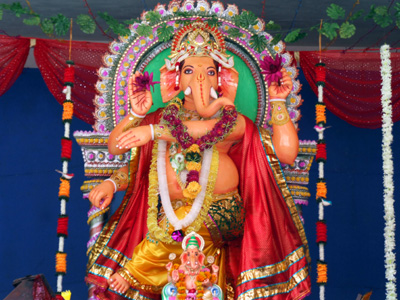
The Basics of Hinduism
Hinduism is so diverse that the basics are spread over thousands of texts and these depict a vast series of events that unfolded over a long course of time. The religious texts of Hindus encompass a very large corpus. The most important are the four Vedas called Rig-Veda, Sâma-Veda , Yajus-Veda and Atharva-Veda. These focus on rituals, while the Upanishads and Puranas throw light on mythological accounts, spiritual insight and philosophical teachings.
In addition to these, there are a many other classical texts (shastras) preaching the Hindu philosophy, as well as the major epics - the Mahâbhârata and the Râmâyana.
Ready for more?
not all...
quizzers. Try to win a coveted spot on our Hall of Fame Page.







